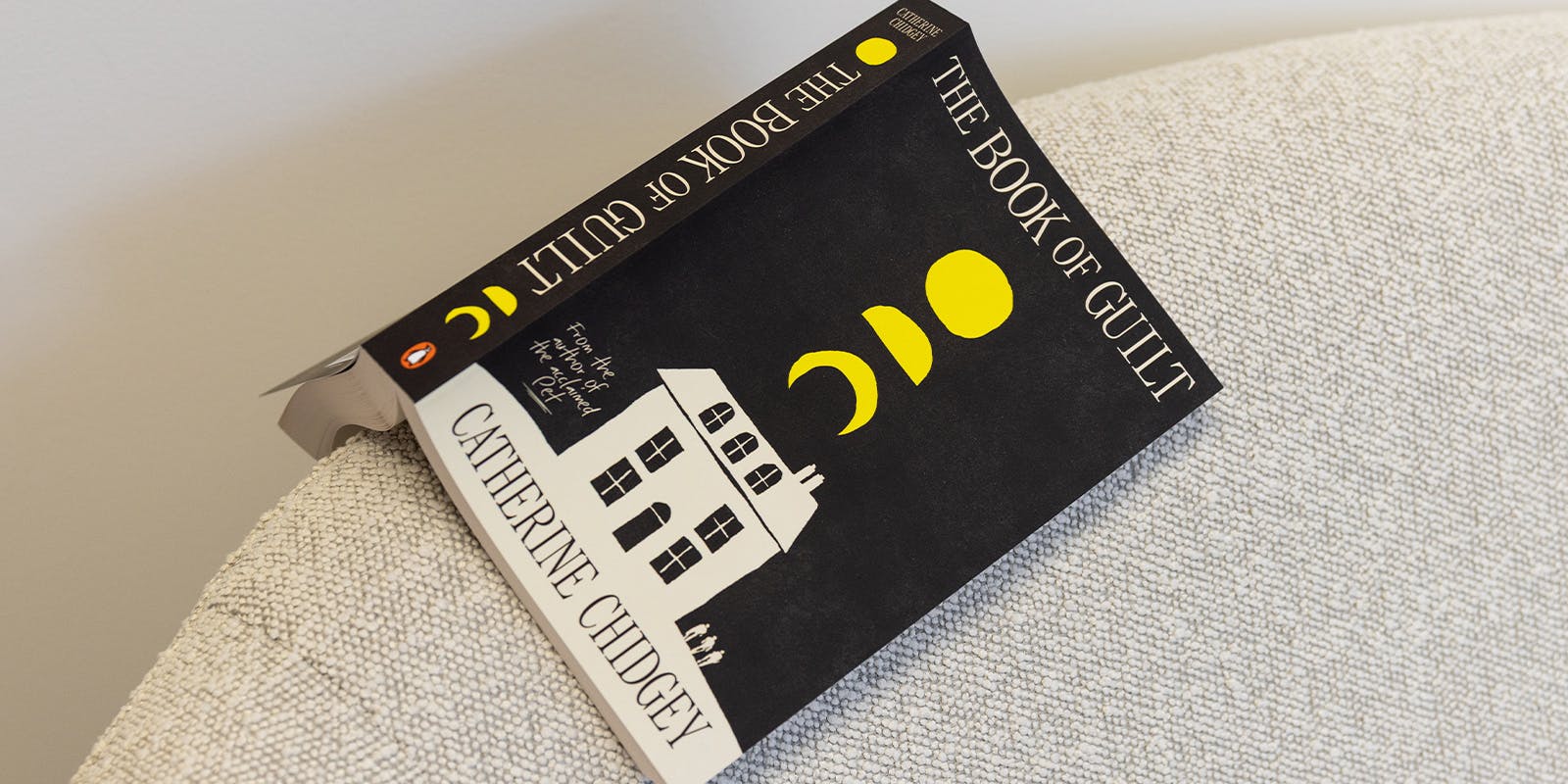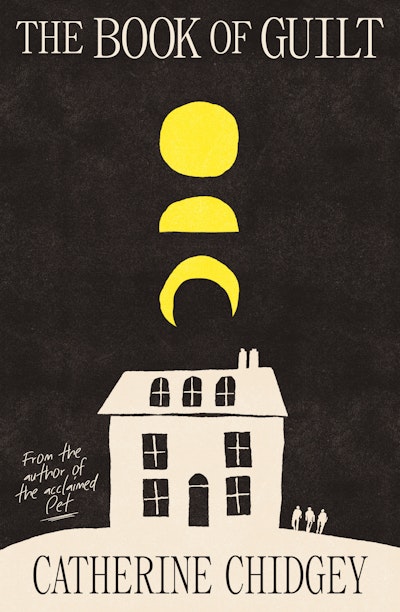A creepy, compelling novel to read with your book club.
The Book of Guilt by Catherine Chidgey is set in 1979 England, where triplets are the last remaining residents of a secluded New Forest home. As part of the government’s Sycamore Scheme, the boys, Vincent, Lawrence and William, spend their days playing games, doing chores, and taking their medicine, under the watchful eyes of three mothers: Mother Morning, Mother Afternoon and Mother Night.
All the boys want is to be sent to the Big House in Margate, where they imagine a beautiful life awaits. But as dark secrets emerge and the government looks to shut down the Sycamore Homes, the triplets begin to question everything they have been told.
Unnerving, addictive and full of thought-provoking questions about the very things that make us human, The Book of Guilt is a memorable book club read that will stick with you long after you turn the last page.
Discussion points and questions
- Catherine Chidgey, rather audaciously, provided an alternative ending to the Second World War. How did this affect your reading of the novel?
- The author says she likes to challenge herself with each new novel. The Book of Guilt, her ninth novel, is her first foray into dystopian fiction. Could it also be classified as fantasy, historical, a thriller or realist fiction? How did you feel about the journey back to the late 1970s?
- In this late 1970s England, some lives are valued less than others. The author uses children to emphasise this aspect of her narrative. Do you think she chose this time and place for a particular reason? Could the novel be set anywhere, anytime, now?
- Did Dr Roche’s research have any medical value?
- The triplets had different relationships with each other and held each other in different esteem. Is this sibling bias explained by their circumstances?
- What was the role of the Minister for Loneliness in the novel?
- Were you shocked by the behaviour of Nancy’s parents? How they treated her and the triplets? Can you imagine grief overwhelming all other potential behaviours?
- Catherine Chidgey implicates the reader through her use of the Copies and the townspeople. We are all bystanders. How did this make you feel?
- There is rising unease for the duration of The Book of Guilt, interspersed with moments of humour, warmth and connection, shock and pathos. How were you feeling by the end of the novel?
- How many of the twists across the novel did you see coming?













